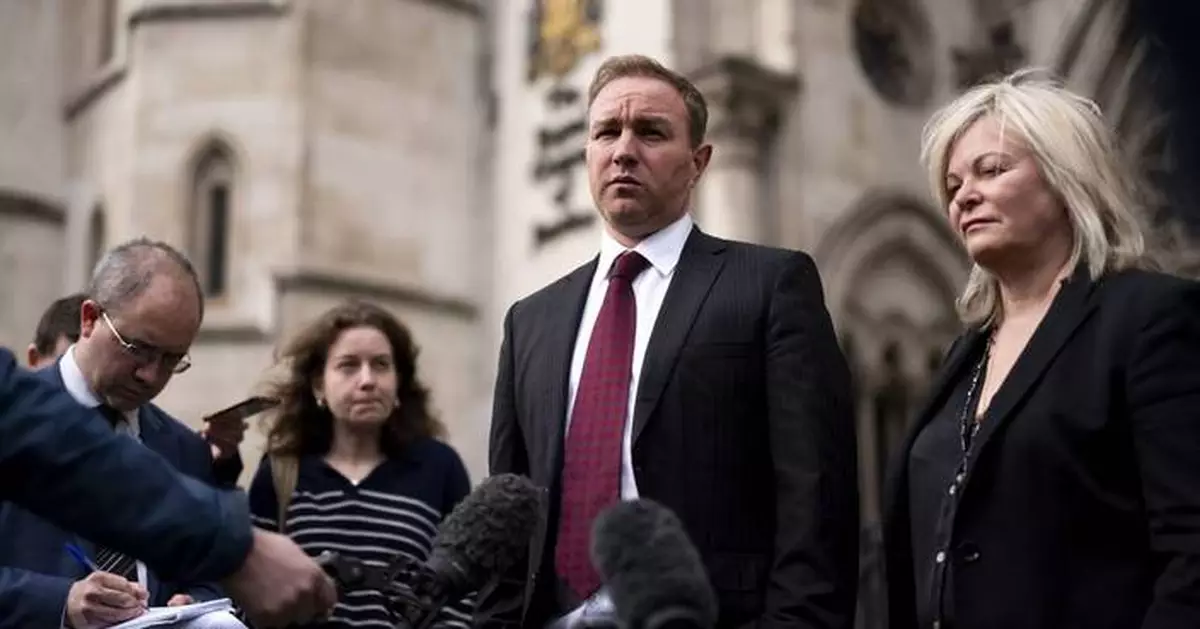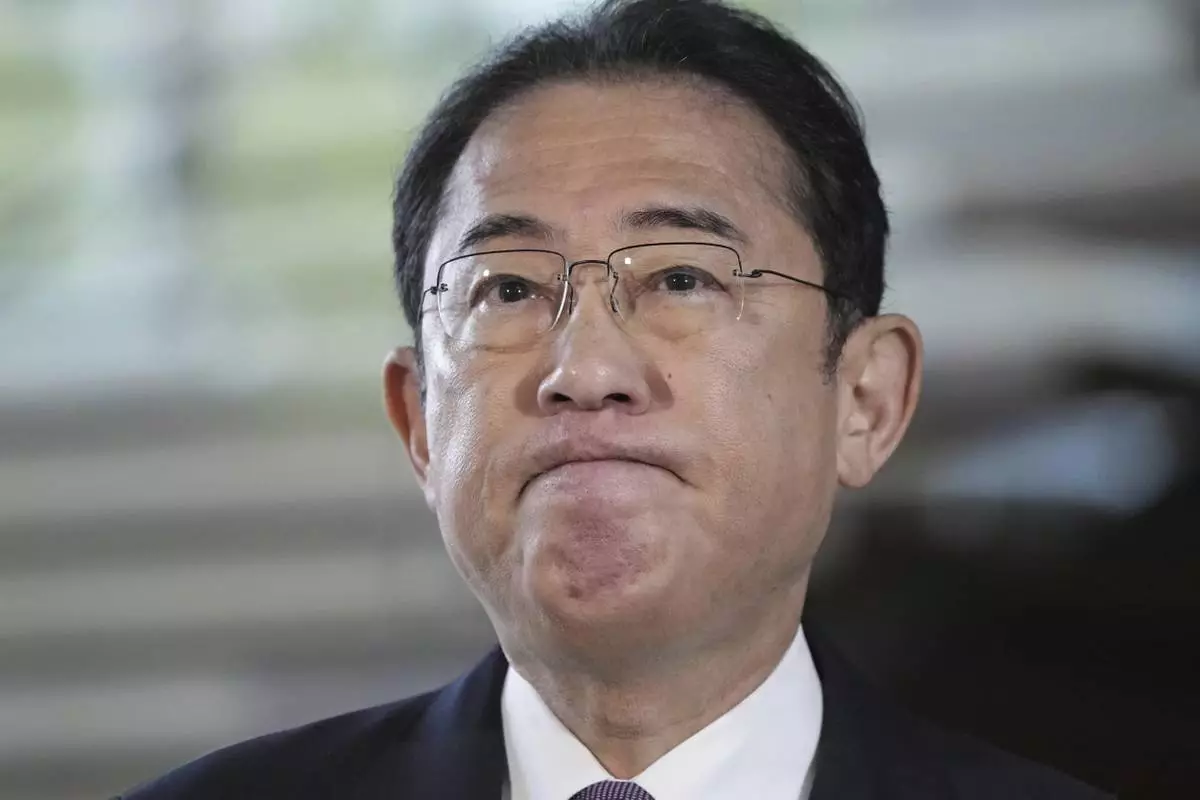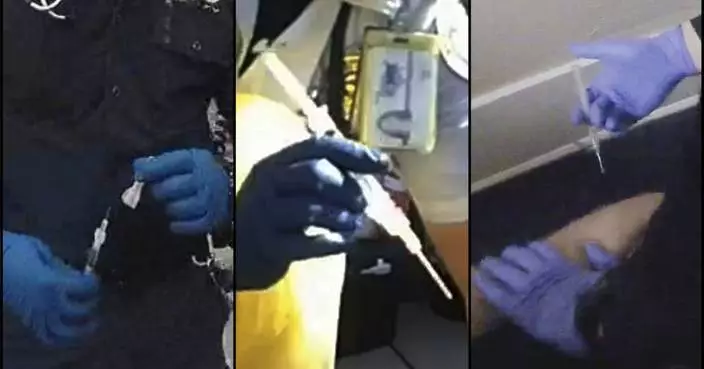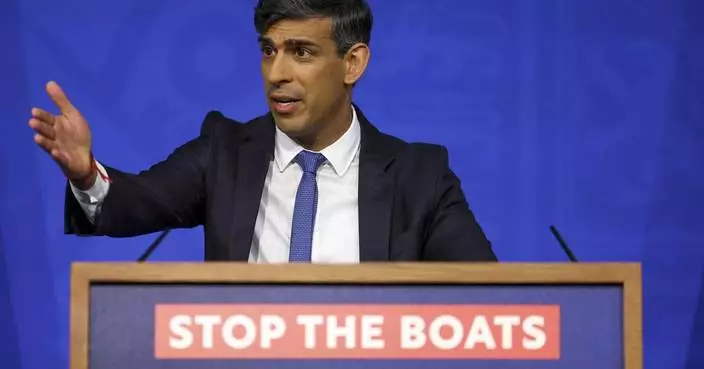LONDON (AP) — A British financial trader, who has been described as the ringleader in the manipulation of a key interest rate before and after the global financial crisis, lost his appeal Wednesday to have his conviction quashed.
Tom Hayes, 44, who was a former trader at U.S. bank Citigroup and Switzerland's UBS, became in 2015 the first person to be found guilty of manipulating the so-called London Inter-Bank Offered Rate, or LIBOR, between 2006 and 2010.
Hayes, who was described at his trial as being at the center of an enormous fraud, spent half of his 11-year sentence in prison before his release in 2021. He was also convicted in a U.S. court in 2016.
He has maintained his innocence throughout, as has former Barclays trader Carlo Palombo, 45, whose case regarding the manipulation of Euribor, the euro currency zone's equivalent to LIBOR, was also referred to the U.K.’s Court of Appeal by the Criminal Cases Review Commission, which investigates potential miscarriages of justice. Palombo had denied acting dishonestly, but was jailed for four years in April 2019 after a retrial.
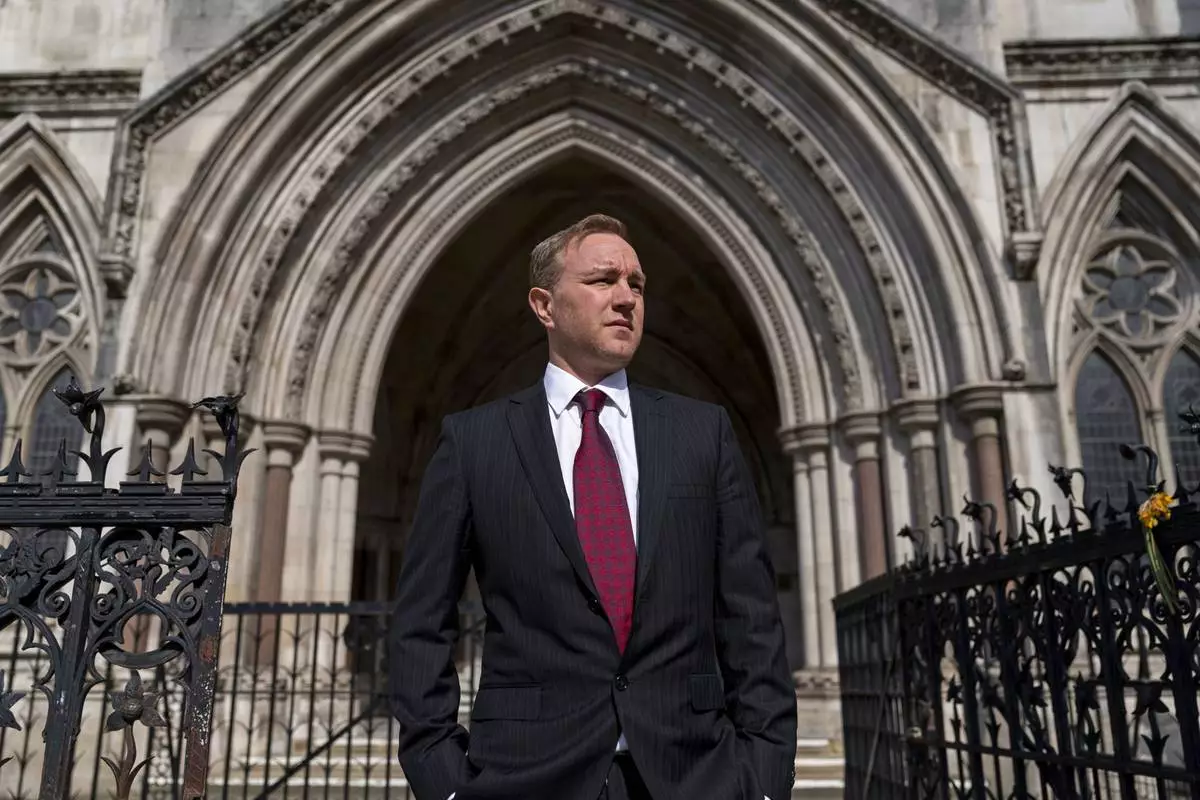
Financial market trader Tom Hayes, who was jailed alongside Carlo Palombo over interest rate benchmark manipulation, looks on outside the Royal Courts Of Justice in London ahead of a Court of Appeal ruling over whether their convictions should be overturned, on Wednesday March 27, 2024. (Jordan Pettitt/PA via AP)
The referral of the two cases came in the wake of a U.S. court decision in 2022, which overturned similar convictions of two former Deutsche Bank traders.
At a three-day hearing in London earlier this month, the men’s lawyers argued that their convictions were “unsafe” and should be quashed. The Serious Fraud Office, which investigates potential financial crimes, opposed the appeals.
“No one is above the law and the court has recognized that these convictions stand firm," it said in a statement.
Speaking outside the Royal Courts of Justice after the ruling, Hayes said the decision by the three appeals judges was “a shock” and that he will be making a bid to take his case to the Supreme Court. An appeal to the Supreme Court has to be made within 14 days.
“I’m a fighter, not a quitter," he said, adding that his case is “not consistent” with laws in France, Germany and the U.S.
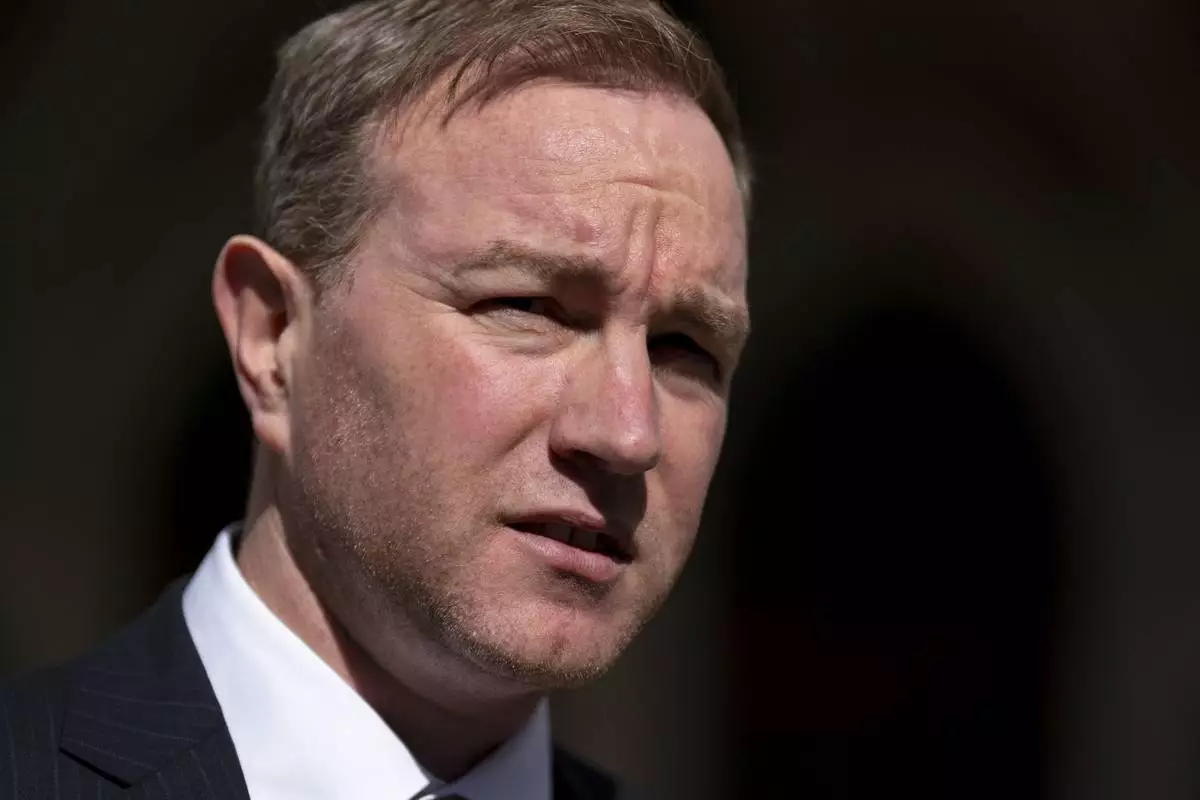
Financial market trader Tom Hayes, who was jailed alongside Carlo Palombo over interest rate benchmark manipulation, looks on outside the Royal Courts Of Justice in London ahead of a Court of Appeal ruling over whether their convictions should be overturned, on Wednesday March 27, 2024. (Jordan Pettitt/PA via AP)
LIBOR was a critical rate that banks used to borrow from each other and indirectly affected the cost people pay when they took out loans — such as when consumers buy a home or a car. It was an interest rate average calculated from figures submitted by a panel of leading banks in London, with each one reporting what it would be charged were it to borrow from other institutions.
The scandal emerged in 2012 when some banks were accused of submitting fake numbers on purpose to have the LIBOR set at a rate that better suited them.
LIBOR has been phased out in recent years, partly because it was seen by many as worsening the 2008 financial crisis.
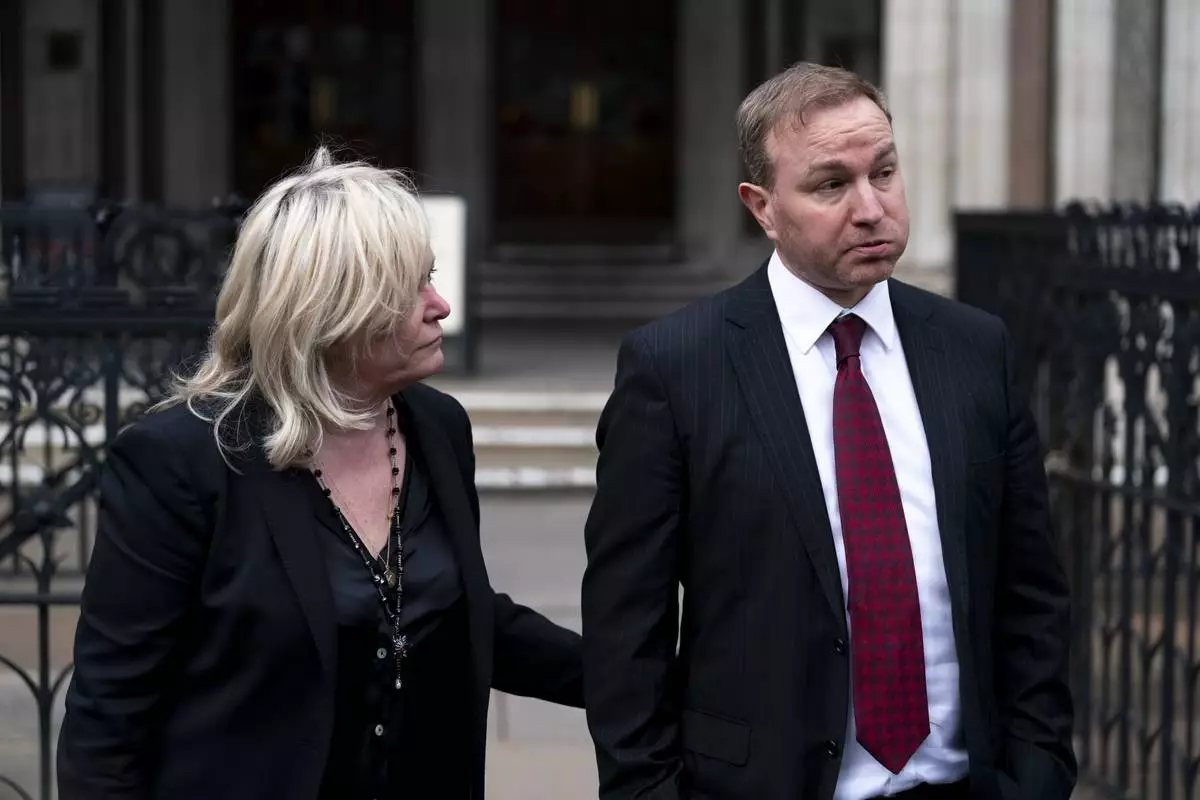
Financial market trader Tom Hayes walks with his lawyer Karen Todner, left, outside the Royal Courts Of Justice in London after two former financial market traders convicted of interest rate benchmark manipulation have had bids to clear their names rejected by the Court of Appeal, on Wednesday March 27, 2024. Tom Hayes, 44, a former Citigroup and UBS trader, was found guilty of multiple counts of conspiracy to defraud over manipulating the London Inter-Bank Offered Rate (Libor) between 2006 and 2010. His case, alongside that of another similarly jailed trader Carlo Palombo, 45, were referred to the court by the Criminal Cases Review Commission (CCRC), which investigates potential miscarriages of justice. (Jordan Pettitt/PA via AP)
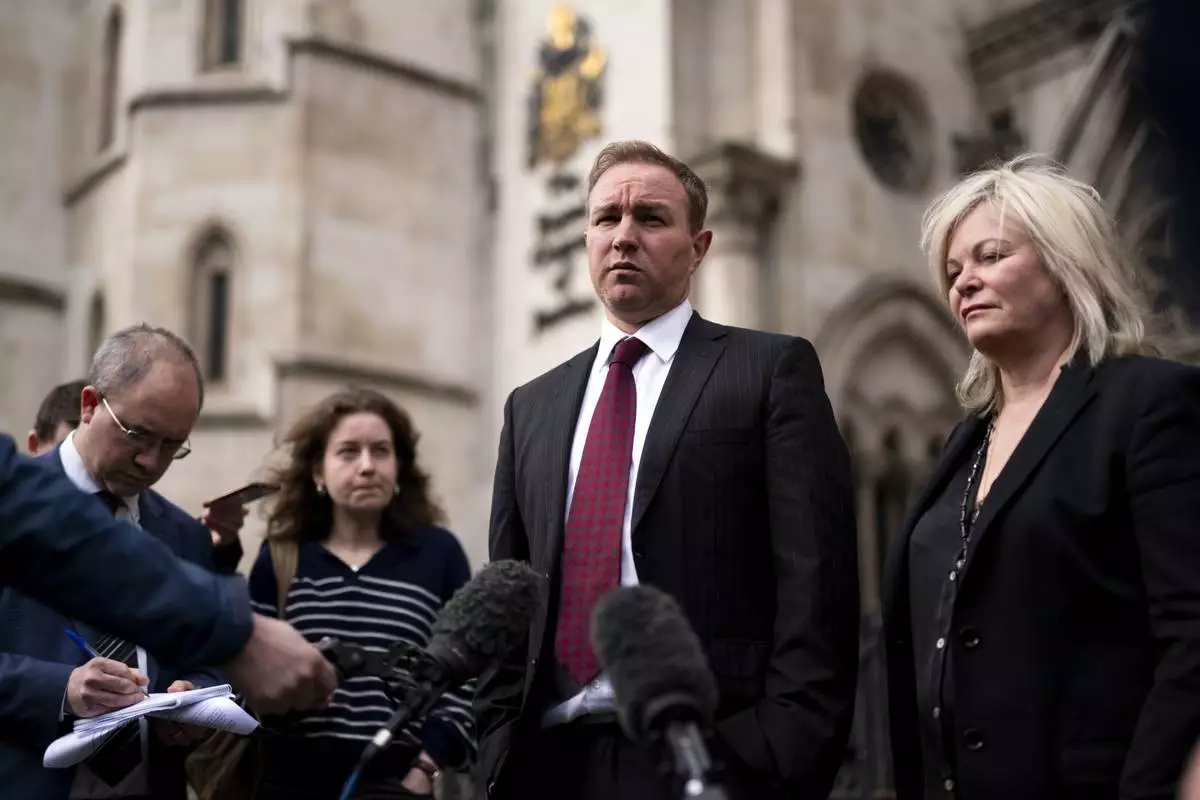
Financial market trader Tom Hayes speaks to the media, with his lawyer Karen Todner, right, outside the Royal Courts Of Justice in London after two former financial market traders convicted of interest rate benchmark manipulation have had bids to clear their names rejected by the Court of Appeal, on Wednesday March 27, 2024. Tom Hayes, 44, a former Citigroup and UBS trader, was found guilty of multiple counts of conspiracy to defraud over manipulating the London Inter-Bank Offered Rate (Libor) between 2006 and 2010. His case, alongside that of another similarly jailed trader Carlo Palombo, 45, were referred to the court by the Criminal Cases Review Commission (CCRC), which investigates potential miscarriages of justice. (Jordan Pettitt/PA via AP)


